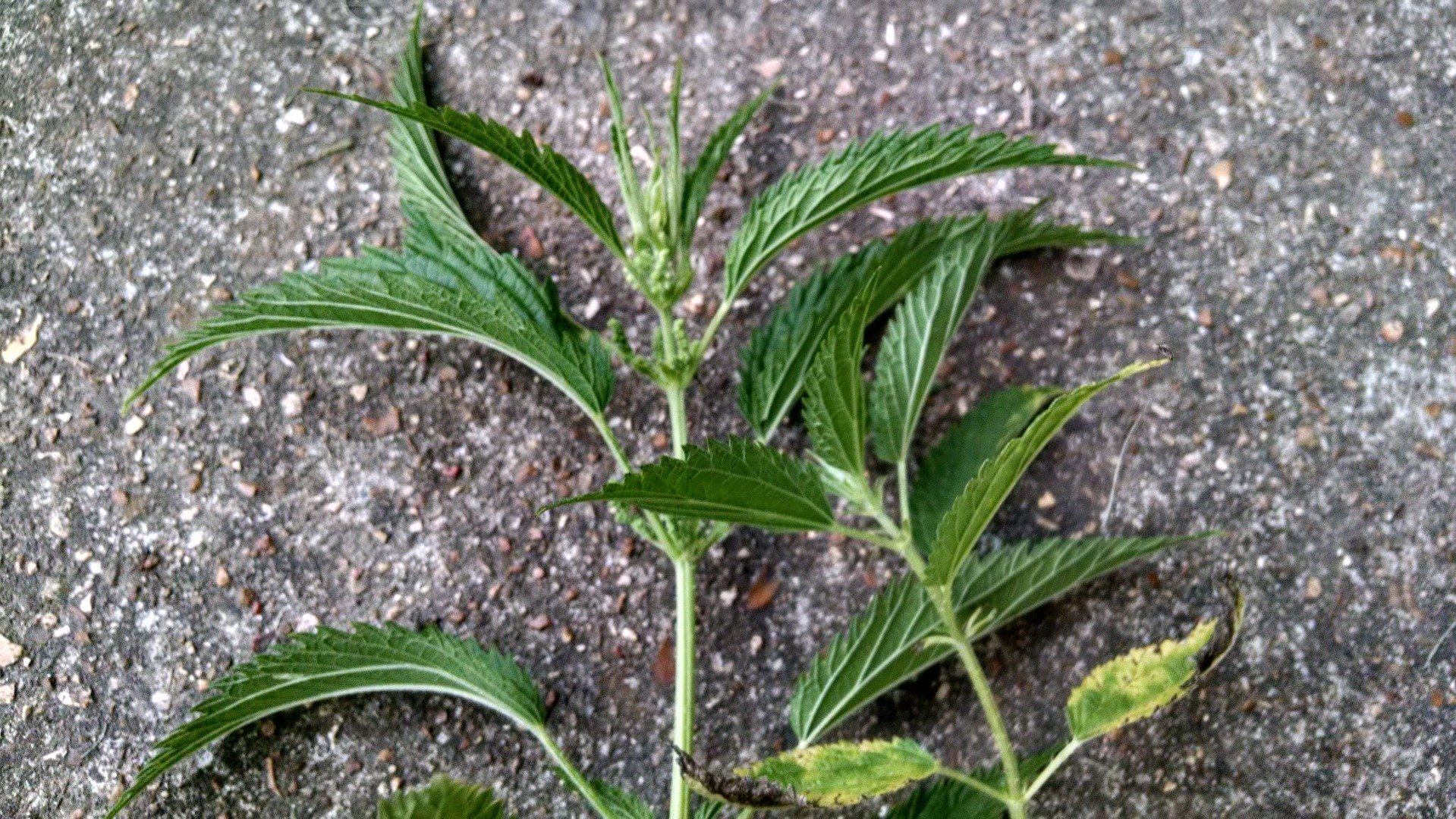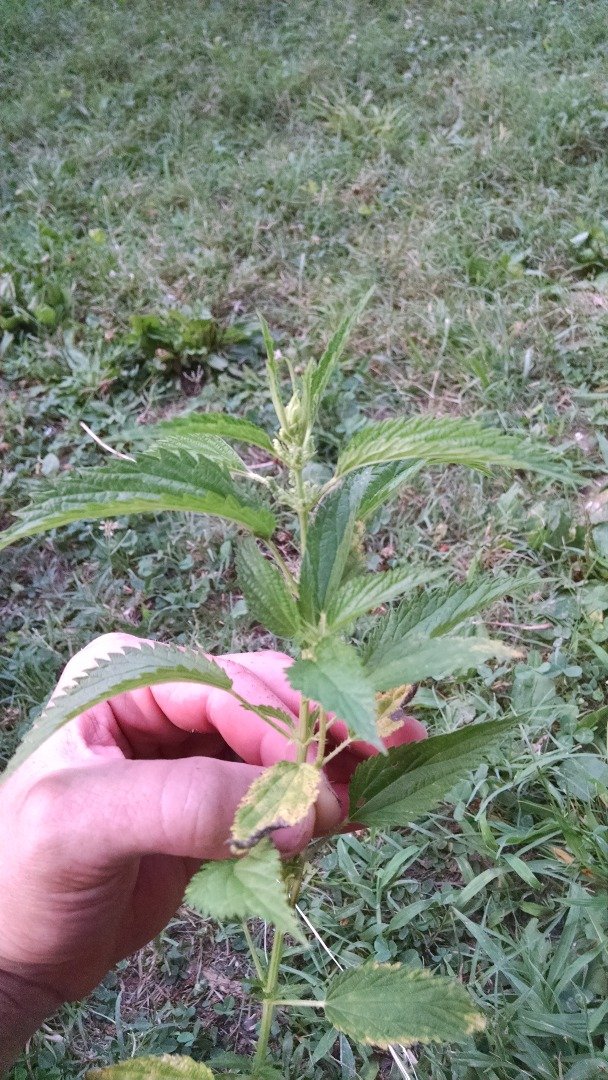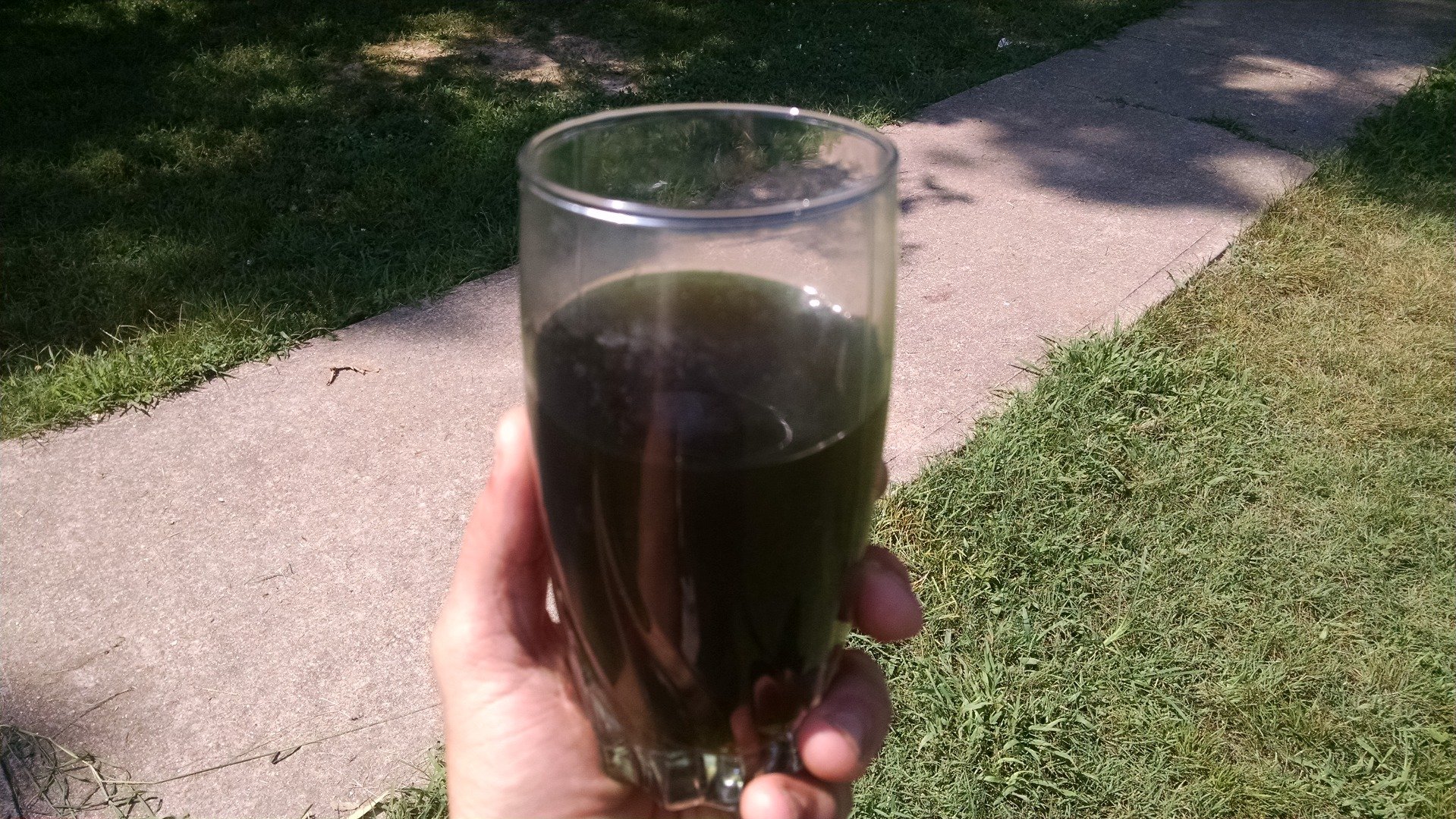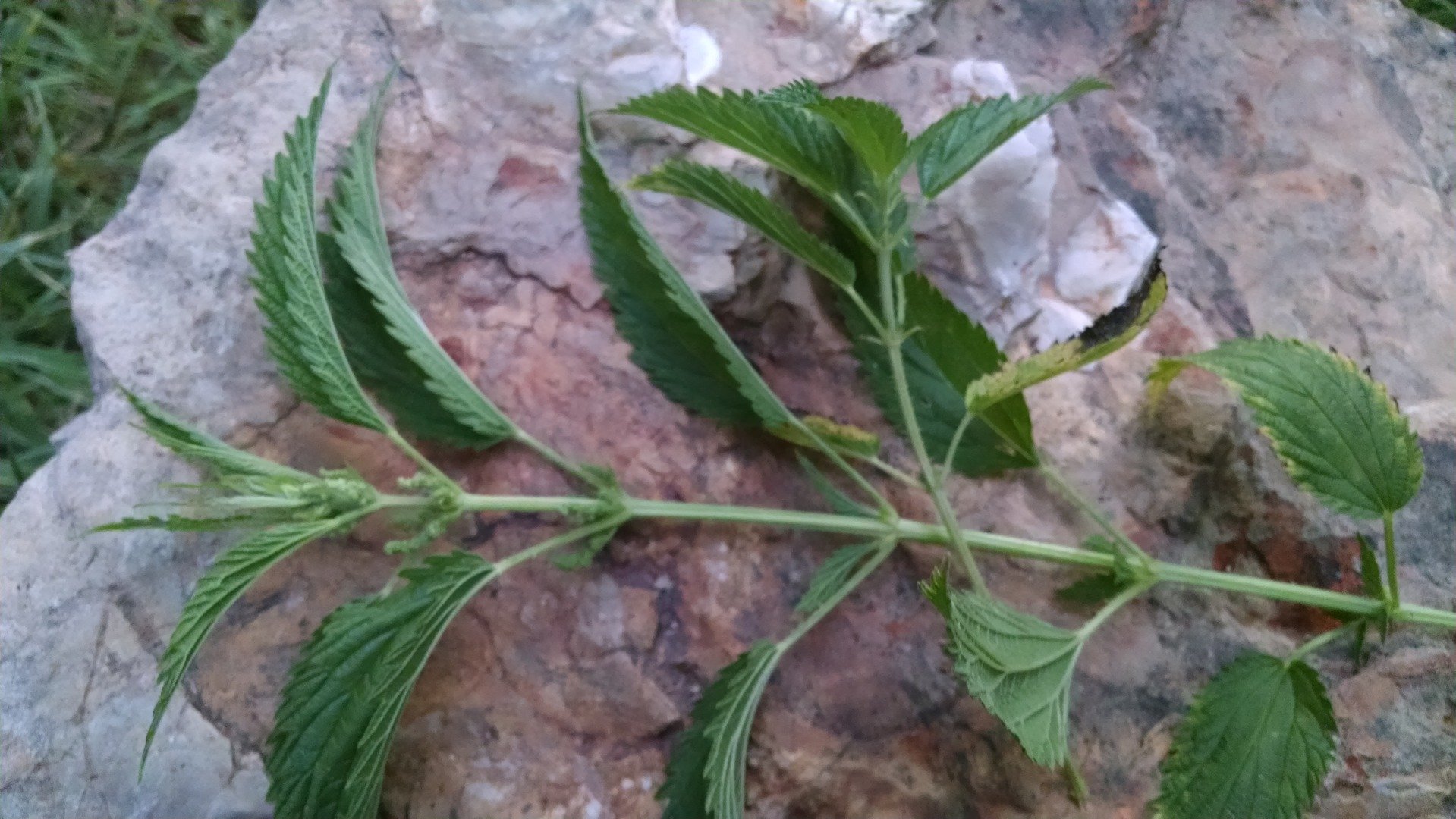
STINGING NETTLE? Yes! Actually it is one of my favorite wild edibles or weeds or noxious plants or whatever you'll call it. It certainly can be very unpleasant, which is why some refer to it at noxious, but it can also be used in many beneficial ways.
I remember that when I was growing up there was a large patch of stinging nettle and skunk cabbage back in the woods behind my parents house. The skunk cabbage sure could stink, but it was the nettle rubbing against my legs that made me itch and burn. Until recent years, I never realized how versatile of a plant stinging nettle really is. Also, for the record, to adhere to rules I posted in the introduction to THE EDIBLE OUTDOORS, I ate the plants pictured in the cover photo, RAW! By rubbing the leaves together in-between your fingers, the nettles natural juices will neutralize the "stingers". Though it is not the most delicious plant to munch on raw, it is still edible, and not entirely unpleasant.
Another way to disarm this potential threat and make it work for you is steeming, sauteing or boiling. When the nettle leaves and stems are exposed to sufficient heat, the stinging characteristic of the nettles are eliminated. My favorite way to eat nettle is either in a soup or sauteed with a little butter and chopped garlic.

Stinging Nettle Tea is a great tasting and beneficial drink too. Though some prefer to steep the leaves, I like boiling them for at least ten minutes, removing the leaves and stems, and then drinking the green liquid that remains.

NETTLE TEA
So, you can eat Stinging Nettle. but that's not all. To the nutritional and medical world, nettle is a real champion. There are also some warnings, precautions, and potential side effects, but those are easy enough to check out if any of you are actually interested. I'll just mention some of the benefits here. Among the claimed positive effects are helping nursing moms produce milk, stopping bleeding, stimulating various internal organs, easing rheumatism and arthritis, purifying the blood, relieving allergies, and many others.
There is not a useless part on this plant. Infusions made from dried nettle leaves can contain even more energy than coffee. The dried stems can be processed and used for cordage or even as a cotton substitute. The seeds are beneficial to the kidneys and the roots for the prostate. The high amount of vitamins and minerals have lead many to call it a super-food.

Though there definitely are downsides to stinging nettle (even the Latin name Urtica Dioica starts off with "Urtica", which means "I burn"), the benefits are many. Nettle certainly is a wild edible, but to me it has become so much more. If you're going to attempt to enjoy this outdoor edible, you may want to use gloves and scissors to harvest them, though many still do it bare-handed. Also, if you're thinking about growing some for yourself, beware that they do propagate by both the spreading root system and the seeds. Give 'em room in an out of the way corner of the yard.
